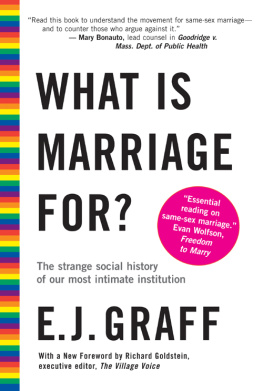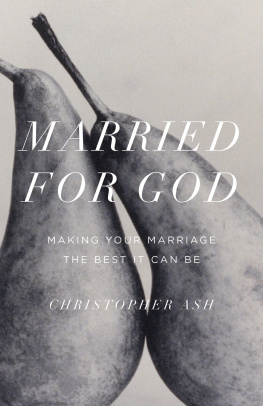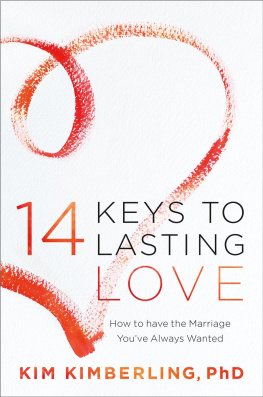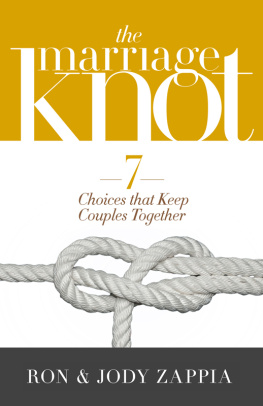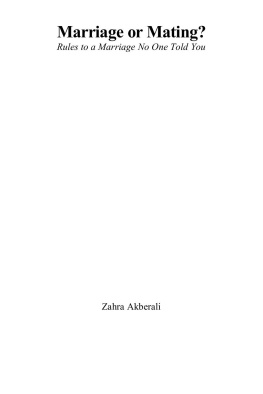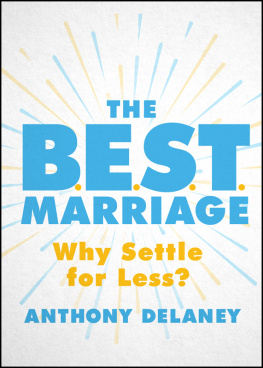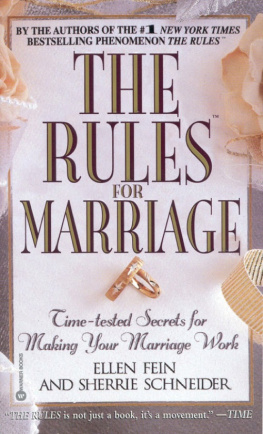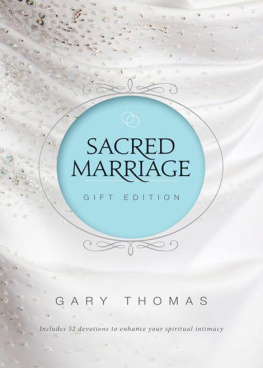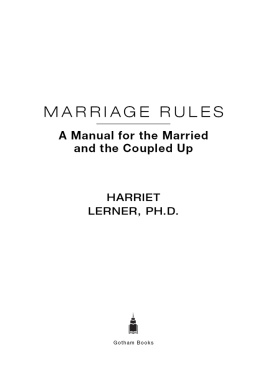A lively personal examination of what it means to choose a life partner (regardless of race or age or sex).
Marilyn Murray Willison, Washington Post Book World
What Is Marriage For? fills a gap in the literature of marriage history... Scholars, law clerks and judges, journalists, politicians and concerned citizens, all caught up in the same-sex marriage debate, will find Graffs book invaluable.
Paul Kafka, San Francisco Chronicle
[A] fascinating journey across time, religions, cultures and forms of economic organization, demonstrating that marriage is a historically contingent institution, that its rules, rituals and purposes have changed dramatically over time, that no one can make any claim about its core essence... This is an important book.
Nancy Polikoff, Womens Review of Books
I found myself devouring Boston-based journalist E. J. Graffs intriguing new book... While many members of the gay community (like me) debate the rather mundane question, Why cant we get married, too? Graff poses a far more elemental, a far more provocative question: What is marriage for?
Michael Hemmes, Gay Chicago Magazine
This book is a must-read for anyone genuinely interested in placing the same-sex marriage debate in its broader historical context.
Beth Robinson, attorney for the plaintiffs, Baker et al v. State of Vermont
In this important book, E. J. Graff shows us how very different the history of marriage is from what most people believe it to be. What Is Marriage For? will give everyone new and more thoughtful insights into the battles being fought over same-sex marriage today.
Dan Foley, co-counsel in Baehr v. Miike, the same-sex marriage suit conducted in Hawaii Circuit Court

TO MADELINE
RICHARD GOLDSTEIN
Foreword
The Radical Case for Gay Marriage:
Why Progressives Must Join This Fight
For some Democrats, gay marriage is the political equivalent of doggie doo. James Carville has identified it as one of those icky issues his party should shy away from. But the times wont allow it. The Massachusetts Supreme Judicial Court has weighed in on the issue, calling for an end to marriage discrimination based on sexual orientation. In New Jersey, a lawsuit is under way thats expected to yield the same result. A proposed constitutional amendment to ban recognition of same-sex marriage is regularly discussed everywhere from the U.S. Senate to the popular media. This wedge issue has been wedged, and the only question is the fundamental one when it comes to human rights: Which side are you on?
Usually progressives can be counted on to prod the Democrats, but not this time. Carvilles comment has gone virtually unanswered by the Left. Theres been no crush of Hollywood celebs at fund-raisers for this cause. The radical cadres that march against globalization and war havent agitated against the proposed gay-marriage amendment. There is virtually no opposition from progressive groups, says Evan Wolfson of the advocacy group Freedom to Marry. The problem is a failure to speak out and get involved. From a movement noted for its passion about social justice, this lack of ardor demands to be addressed.
Mind you, plenty of progressives, queer and otherwise, have enlisted in this fight. NOW has filed amicus briefs in several marriage cases. The Leadership Council for Civil Rights circulated a letter among its members opposing the amendment. But there is dissent in each of these organizations, and the divisions are sufficiently deep that activists have had to present two options: If you cant support same-sex marriage, surely you can see the danger in an amendment banning it. This approach has been fruitful, but the larger problem remains. Whether its due to a failure of progressives to connect the dots or a failure of gay groups to ask for their help, says Wolfson, theres a curious silence.
Why the reticence? In part, its because the Right has attached this issue to fears about the future of the family, and some progressives are all too willing to fall for that line. In part, its a question of style. Ever since the days of Emma Goldman, marriage has been icky for radicals. Their image of gay culture as a site of resistance is threatened by the thought that these sexual outlaws might hew to the narrow if not the straight. Underlying these concerns is the fundamental reason why many feminists and sex radicals are cool to gay marriage. They worry about the unintended consequences.
In seeking to replicate marriage, Judith Levine wrote recently in the Voice, reformers may stall the achievement of real sexual freedom and social equality for everyone. Queer theorist Michael Warner regards marriage as part of a larger push toward gay normalcy, and he sees this trend as a threat to the variety that has flourished in the queer community, with its ethical refusal of shame or implicitly shaming standards of dignity. Warner calls marriage selective legitimacy.
Both feminism and gay liberation have developed a potent critique of matrimony, exposing its relationship to repression and patriarchal privilege. Activists who cut their teeth on this reasoning are guided by it (and anyone headed for the altar would be well advised to check it out). But as E. J. Graff reveals in this smart and profoundly progressive volume, institutions change, andthanks largely to agitation by radicalsmarriage today is (or can be) different from the prison many older feminists escaped. Yet these memories of underdevelopment color the reaction of some progs.
I want to argue that their critique of gay marriage is shortsighted in several respects. Even when it is correctas in its claim that marriage is organized to bolster the socio-marital orderit ignores the human capacity to transform an oppressive institution. As for the notion of normalcy, it simplifies the reasons why lesbians and gay men might want their relationships to carry the same legal weight as heterosexual ones. Major questions of civic equity and social prestige are on the line; this is much more than a flight from the creative anarchy of queer life. What gays are fighting for is the option to marry, not the obligation to do soand choice, as all progressives should know, is the essence of freedom. In that sense, theres a connection between same-sex marriage and abortion rights. Thats why both issues are central to the culture wars.
If the Right succeeds in barring gay marriage, the fallout will do much more to set back sexual freedom than any wedding vow. The proposed amendment stipulates that no state constitution can be read in a way that extends the incidents of marriage to same-sex couples. In other words, all domestic-partner arrangements and civil-union statutes that come by court order will be voided. Only laws that emanate from legislatures or policies enacted by private companies would be valid. The result would be a patchwork of procedures varying so dramatically that no unmarried couple could be sure of the right to inherit assets, retain custody of children, carry a partners health insurance, or even visit a loved one in the hospital. (Its worth noting that even in New York City the tradition of forcing lovers to identify themselves as siblings in order to be with their mates in the intensive-care unit is still alive.)
The panic over gay unions obscures this hidden agenda, but rest assured, the real object of the Rights campaign is straights who stray. The same people who are agitating for the amendment dont intend to stop there. The next thing they will go after is what they call divorce on demand. Feminists who recoil at the thought of supporting marriage rights should consider what America will be like if everyone except homosexuals is coerced into matrimony.

